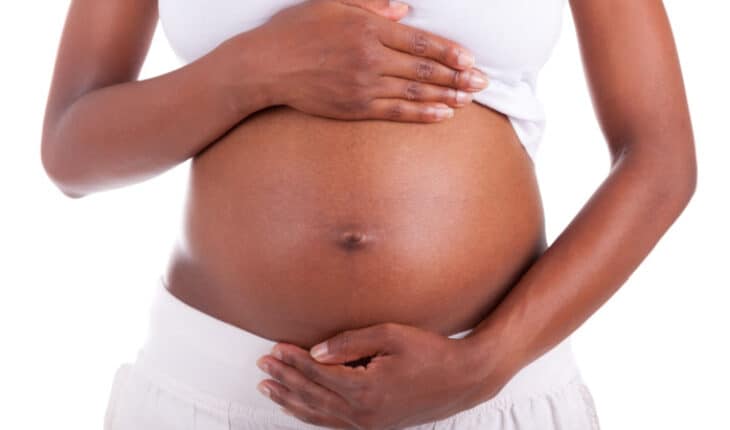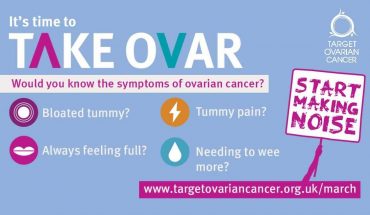“Racism is real” Black and Asian bereaved parents reveal barriers to safe maternity care. The Listening Project report, published 14 December by the UK’s leading baby loss charity Sands, highlights barriers, biases and poor care that may be contributing to inequalities in baby deaths in the UK.
The Sands report is published on the same day that MBRRACE-UK publishes the findings of its confidential enquiry into Asian baby deaths, which Sands was instrumental in campaigning for, alongside its confidential enquiry into Black baby deaths in the UK.
The MBRRACE-UK report is based on a review of the mother and baby’s medical notes. In contrast, the Listening Project report focuses on the experiences of bereaved parents. Sands spoke with 56 Black and Asian bereaved parents during 2023, to learn about the maternity, postnatal and neonatal care they had experienced.
Half of the parents who took part in the Sands Listening Project believed that they had received worse care or been treated differently by healthcare staff because of their ethnicity.
Mothers described how stereotyping by health professionals meant they were not listened to when raising concerns. For example, some Black or mixed white and Black women were typified as ‘strong’, ‘feisty’ or ‘dramatic’ by midwives and doctors, when they were actually afraid or in pain. For several Asian participants, stereotyping involved being dismissed as overly anxious or prone to exaggerating health concerns. In addition, some parents who had worked within the NHS provided examples of ‘behind the scenes’ racist behaviours and language, which can affect the care and safety of patients if not addressed.
Sands’ Chief Executive Clea Harmer said: “In the UK, repeated reports show that rates of pregnancy loss and baby deaths are higher among Black and Asian babies compared with white babies. These differences have been evident for decades, yet there has been little progress by Government or the NHS in addressing them.
“Through the Listening Project we have found evidence that their ethnicity contributed to parents’ concerns being dismissed by health professionals, and this was a common experience for Black, and Asian parents and those of mixed ethnicity. We are calling on the Government to make sure maternity safety is at the top of their to-do list, and to work with NHS leaders on creating long-term, funded plans aimed at eliminating inequalities in pregnancy loss and baby deaths.
“Sands is here for anyone who has experienced pregnancy or baby loss, always, because every baby and every family matters to us. There is no doubt that listening to parents saves babies’ lives. We must ensure parents’ voices are at the heart of research and policy changes to improve maternity safety and reduce inequalities.
“We must all challenge inequality when we see it, and the experiences of Black and Asian parents described in our report are shocking. No baby should be more at risk of dying due to their ethnicity, and we are determined to do all we can to save babies’ lives.”
Inequalities in maternity safety require urgent action
Around 13 babies die shortly before, during or soon after birth every day in the UK. And at least 15% of pregnancies end in miscarriage.
However, Black and Asian babies are more likely to be stillborn or die in the neonatal period compared with white babies. The latest available data show that in 2021, compared with white babies, Black and Black British babies were more than twice as likely to be stillborn, while Asian and Asian British babies were over 50% more likely to be stillborn. In fact, if stillbirth and neonatal death rates between 2017 and 2021 for Black and Asian babies had been the same as for white babies, 1,704 babies would have survived.
In recent years, previous progress in reducing perinatal mortality rates has slowed and even reversed. Rates among babies from minoritised ethnic groups and more deprived backgrounds remain persistently higher and slowest to improve.
“As a bereaved parent I want to be heard and for changes to happen. This issue doesn’t stop in the South Asian community. It’s scary for anyone who is pregnant, no matter your race or colour, when you read and hear about how many more maternity services are now being rated as poor and inadequate. But when you’re Black or Asian, and you know that statistically you are more likely to experience poor care on top of this, it’s frightening. This shouldn’t be happening, not being listened to, poor care, disastrous outcomes, it should not happen.” – Bhavna, mother of Joshan who died shortly after he was born at 39 weeks (Asian/Indian).
Sands is calling on the Government to set out how it will eliminate inequalities in pregnancy loss and baby deaths. We think they can achieve this by:
Making sure all maternity and neonatal services have the staff capacity, skills and resources they need.
Ensuring that all maternity safety improvement schemes include a focus on tackling inequalities, with action, progress and impact monitored.
Funding a research programme to inform the development of effective interventions to address health inequalities and save babies’ lives.
The public can support Sands’ call for Government action to tackle inequalities in baby deaths.
What parents told Sands about their experience of maternity care
Parents described a range of safety issues that fell within four key areas of care:
1. Being listened to and heard – just over half of all the parents described healthcare professionals not listening to them or dismissing their concerns, with some linking this to racism or stereotyping. For some, this led to important warning signs and risk factors being missed, and delays or omissions in care.
“When I’d go in for a check, you just feel like they’re treating you as if, like the stereotype of, ‘Oh, it’s an Asian woman. They’re always worrying’, you know, ‘They’re always exaggerating things’. And even if that is a stereotype, even if you do think that, you should still take it seriously, no matter what. Because this a child’s life.” – Mother to a baby born at 37 weeks who died neonatally (Asian/Pakistani)
“I think they just could not recognise in me actual fear. They just saw this feisty, strong, brown woman. And actually I was so scared I couldn’t speak. I was just like blank. And they kept saying stuff like, ‘You’re so brave. You’re doing so well, you’re so brave’. And I just thought, you haven’t even asked me if I’m OK. Because if you had asked me, you would know that I am not OK. And that this is not bravery, this is fear.” – Mother to a baby born at 26 weeks who died neonatally (Mixed white and Black Caribbean)
In 2022, Amber became pregnant with twins. Her pregnancy was miscategorised as low risk and she had to ‘fight’ to be heard and access the care she needed. A series of individual and systemic failings led to cancellations and delays, and her babies were born and died at 22 weeks before she could access the care she needed.
“I had a high-risk pregnancy because they were twins. I had a high-risk pregnancy because I had my miscarriages. And what’s come to light with my investigation that’s happening, is that I was treated as a single pregnancy, and I wasn’t treated as high risk. If the NHS just listened to me. And just put my appointment through when I was constantly asking. If they had the notes there properly. I wouldn’t have been treated that way.” – Amber, bereaved mother of twins Anaya and Mael (mixed white and Black Caribbean).
Amber has since wondered if she would have been listened to or treated differently if she was from a different ethnic background. She believes that the current emphasis on Black and Asian mothers ‘speaking up’ and advocating for themselves when pregnant is not a proper response to managing inequalities.
2. Personalised, joined-up care – fragmented care meant that parents continually needed to develop new relationships and build trust with health professionals. This was made even harder for parents from minoritised ethnic groups because of hostile attitudes and stereotyping from some healthcare staff.
“Every time I’ve had a new midwife through my pregnancies the initial kind of meeting always feels a bit weird. Because of being an ethnic minority, and also Muslim and the way I dress. But then once that initial ice is broken, and people understand like, no, I can, you know, communicate. I can, like, pass my message across. Once that initial kind of thing is over then it’s OK.” – Mother to a baby who died at 31 weeks (Asian/Pakistani)
3. Communication about safety and risk – many parents felt they were not given the information they needed about safety and risk. Some parents described feeling anxious when their ethnicity was highlighted as a risk factor but did not lead to enhanced care.
“I’m mixed race inheritance. And the midwife was like saying to me, ‘Oh, where you from?’ ‘Are you African, are you Caribbean? Just tick one of them.’ I said, ‘I’m not African’. She goes, ‘Oh well, are you Caribbean?’ She goes, ‘Oh, a lot of Caribbeans, Africans get a lot of blood pressure problems, diabetes’.” – Mother to a baby who died at 24 weeks (Mixed white and Black Caribbean)
“For me, it was more to do with my ethnicity should have given me a bit more of a bigger, better care plan. My ethnicity should have helped, prevented what was going on. I’m not a medical professional and I myself could see, I already fitted in the criteria of being at higher risk towards the end of my pregnancy.” – Mother to a baby who died at 39 weeks (Asian/Pakistani)
The experience of one Black father highlights the importance of maternity and neonatal professionals providing clear, unbiased information about risks to build trust when supporting Black and Asian parents.
Daniel and his partner declined diabetes screening in their first pregnancy because of a lack of information and rationale from health professionals. They later learned that undiagnosed diabetes might have been a factor in the stillbirth of their baby.
In their second pregnancy, the couple received enhanced care from a team specialising in pregnancy after loss. They had a far more positive experience of care, with opportunities for detailed, respectful conversations with professionals.
“I just feel that discourse can be there, and it does really make such a difference to actually be informed. Because it empowers us as parents, you know, to really make the best decisions for your baby.” – Daniel, father to a baby who died at 41 weeks (Black Caribbean)
4. Safety and learning – for parents who described a review or investigation having taken place, most described negative experiences linked to errors and delays, poor communication, and a lack of candour and support. This often left parents with unanswered questions and a sense that finding answers was not the Trust’s top priority.
Daniel described how similar issues with poor communication carried over into the investigation into why their baby died.
“I kept trying to be part of the conversation. But it was almost like the doctor closed me out. We tried to get some of our questions asked. Because we thought we were going to have that space. And I think they probably answered about two of them. And those questions were never really answered. We just had to try and answer them ourselves, you know, in different ways.” – Daniel, father to a baby who died at 41 weeks (Black Caribbean)
Parents’ praise for when maternity care is done well
Sands also heard positive stories of healthcare professionals who were remembered by parents as having listened to them with empathy and taken their concerns seriously.
Parents appreciated it when healthcare professionals gave them their time and full attention, making them feel seen and heard.
“Every single person I had interactions with just made my second pregnancy a lot easier emotionally. Obviously I still had it in the back of my mind that it could happen again. But there was a lot of reassurance about, you know, we can certainly give you extra scans, support. Obviously, not reassurance that we’ll give you a healthy baby, but we’ll do what we can to make it easier for you.” – Mother to a baby who died at 25 weeks (Asian/Bangladeshi)
Sands is here to support anyone affected by pregnancy or baby loss, for as long as they need this. Find out more about all the ways the charity offers bereavement support.
Sands is creating a future where more families get to bring their babies home. Please donate, and support Sands’ vital work to save babies’ lives.
- New lipid-based pathway discovered as key to memory formation - 25th June 2025
- Crucial link could explain how Alzheimer’s takes hold - 25th June 2025
- Understanding Your Mind Can Improve Daily Life - 25th June 2025







